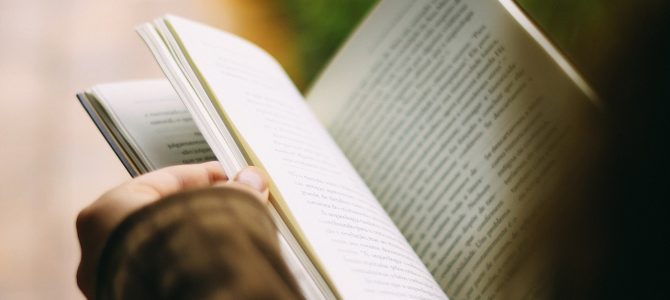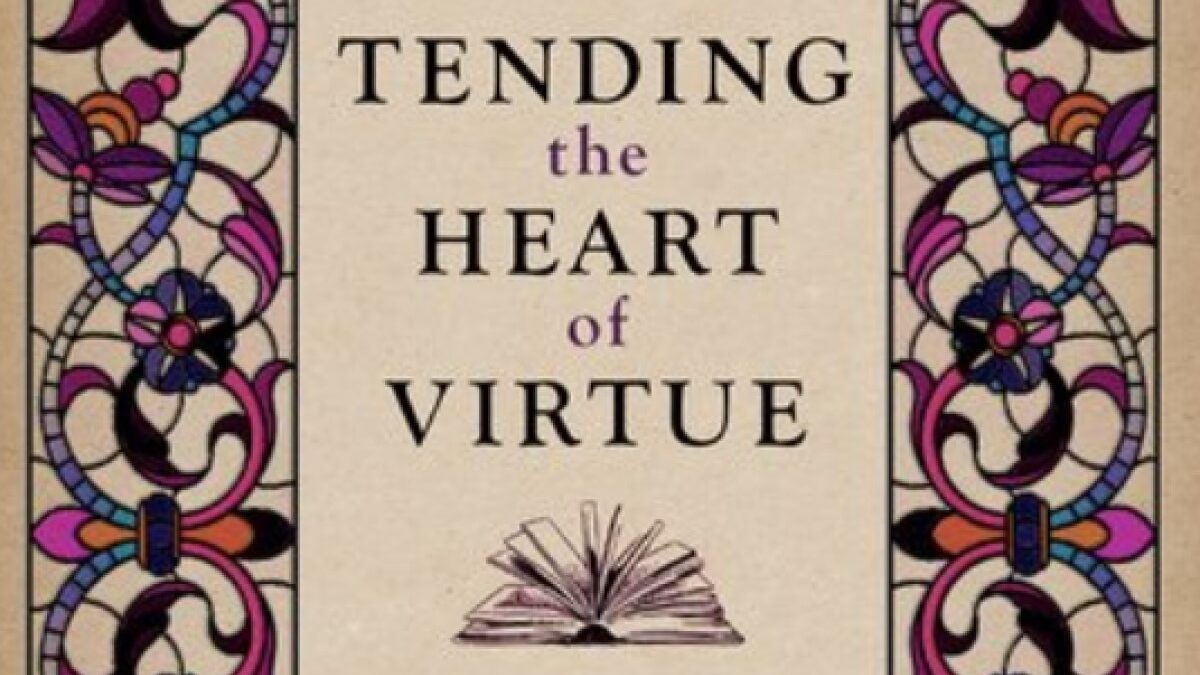
I could spend this evening reading Betty Smith’s “A Tree Grows In Brooklyn.”
Or I could check my email. And do the dishes. Perhaps I could watch “Jane the Virgin,” or read that long piece in The Atlantic a friend sent me.
Someone tagged me in a Facebook photo, and I’ve got 10 new likes on Instagram. And of course, I mustn’t forget to post something on Twitter.
Often, this is what happens when I sit down to read something. Unless it’s a book I’m reading for work, it’s difficult to excuse reading time—and difficult to devote my attention to the task.
Does It Matter That We’re Not Reading Anymore?
Considering the buzz around each year’s bestsellers, it’s easy to wonder whether my plight is an anomaly. Christopher Ingraham reported for the Post last year that the percentage of Americans who read literary content has dropped to at least a three-decade low. In 2015, less than half of Americans reported reading at least one work of literature—down from 57 percent in 1982. Ingraham reports,
The NEA’s numbers, released last month, are meant to capture reading for pleasure. They explicitly exclude required readings for work or school. The survey also makes no differentiation between physical books and works read on e-readers, in an attempt to capture the broadest possible range of leisure reading.
Perhaps most interesting of all is the fact that Ingraham then asks, “So what?”
“Does it even matter if people are reading fewer works of literature?” he writes. “What if we’re reading less Tolstoy, but filling the void with, say, Facebook statuses from our friends and articles we read online?”
To literature lovers, such words immediately conjure up rebuttals. Fiction fosters the imagination, empathy, and virtue. The stirrings of the soul prompted by Austen or Shakespeare cannot possibly be compared with trivial and passing Facebook status updates.
Yet, as reading rates drop, we must consider the fact that this is increasingly a minority opinion.
‘Aliteracy’ And Apathy Toward Literature Is Rising
The Walrus just excerpted a fascinating passage from Alex Good’s book “Revolutions: Essays on the Contemporary Canadian Novel.” In it, Good considers our waning interest in literature, a phenomenon he calls “aliteracy.” Unlike prior societies throughout history, illiteracy does not prevent us from reading. It’s that we increasingly choose not to.
Many believe we live in a post-literate age, one in which, writer Douglas Glover concludes, ‘books have become irrelevant.’ Others disagree, some vehemently. His point is not, however, one I want to enter into a debate over. I don’t want to beat up on the degraded tastes of the common reader, analyse the impact of the digital revolution on reading habits, or make an appeal for the government to do more to address stubbornly high rates of illiteracy. What I find of most concern and significance is the rise in aliteracy—the growth of a population that can read but simply doesn’t want to.
… there is nothing new about the fact of mass aliteracy. Writers like Daniel Boorstin, Richard Poirier, and Neil Postman were raising the alarm decades ago. In 1982 Poirier took it as axiomatic that in an affluent, democratic age ‘people have acquired enormous cultural power, but they do not exercise it by reading. Their cultural power is expressed by their choosing, as they could never have done before, not to read, or at least, not to read Literature.’
While many have predicted a decline of interest in the arts, we’re only now beginning to see and appreciate the corresponding statistics. The questions we must ask now are twofold: first, were the predictions of writers like Boorstin and Postman correct? Is literature declining for the reasons they suggested? Secondly, what are we to do about it?
How The Digital Revolution Shapes Our Reading
While Good says he does not want to “analyse the impact of the digital revolution on reading habits,” we cannot discuss growing apathy over reading without considering the impact technology has had on our tastes.
The most obvious way we see technology shape our reading (or lack thereof) is in the distractions and amusements it presents: as Postman predicted, and so famously wrote in “Amusing Ourselves To Death,”
What Orwell feared were those who would ban books. What Huxley feared was that there would be no reason to ban a book, for there would be no one who wanted to read one. Orwell feared those who would deprive us of information. Huxley feared those who would give us so much that we would be reduced to passivity and egoism. Orwell feared that the truth would be concealed from us. Huxley feared the truth would be drowned in a sea of irrelevance. Orwell feared we would become a captive culture. Huxley feared we would become a trivial culture, preoccupied with some equivalent of the feelies, the orgy porgy, and the centrifugal bumblepuppy.
As Huxley remarked in Brave New World Revisited, the civil libertarians and rationalists who are ever on the alert to oppose tyranny ‘failed to take into account man’s almost infinite appetite for distractions.’ In 1984, Orwell added, people are controlled by inflicting pain. In Brave New World, they are controlled by inflicting pleasure. In short, Orwell feared that what we fear will ruin us. Huxley feared that what we desire will ruin us.
This book is about the possibility that Huxley, not Orwell, was right.
How Infinite Distractions Keep Us From Reading
It takes mere minutes to think up an infinite host of pleasurable distractions that might pull our attention away from the written word. First, there’s the Internet—and within it, Facebook, Instagram, Twitter, Pinterest, Google, Buzzfeed, news websites, blogs, computer games, Netflix, Amazon Video, and Hulu. Like Huxley’s populace, we are not sufficiently “savage” to know Shakespeare and the Bible by heart—but we can quote every meme and viral video that populates the Internet.
Then, there’s television: Verizon Fios offers as many as 425+ channels in one of its packages. There are endless sports, news, history, cooking, reality TV, and DIY channels to satisfy our interest. This doesn’t even consider the newfound place video games take up in the lives of many Americans.
We have tons of smartphone apps now. Candy Crush Saga became infamous for its addictive effect in Americans’ lives, as did Pokémon Go when it first came out. Dating apps like Tindr and Bumble tempt users to scroll endlessly through a list of potential mates.
Distractions and time commitments are not confined to the virtual world. Americans work more than anyone in the industrial world: they take less vacation time, work longer hours, and retire later. What’s more, Americans increasingly bring their work home with them—checking email and completing tasks in the evenings and over the weekend. The computer has, in many ways, given us more vocational freedom. But it has also, problematically, fostered an attitude of guilt when we aren’t working.
Reading Is Work, In a Way Other Pastimes Aren’t
Why is it that the busy working professional will turn off his or her computer to binge-watch a season of “The Walking Dead,” but not to read Tolstoy? To most, the answer is immediately obvious: reading is “work,” to a degree that television is not.
Tolstoy requires intense focus, careful reading. But television offers us a sedentary respite, both mentally and physically. It dulls the whirring tension of our brains. Films are often interesting and insightful—but even the detailed artistry of “The Crown” doesn’t require the focus and diligence that a reading of Jane Austen’s “Sense and Sensibility” would require.
Finally, there’s another fascinating reason that many turn away from reading. Put simply, there’s simply too much to read. We get overwhelmed by all the choices, and in response, decide it’s best to read nothing. “In an age of information overload, with far too many books being published for any one person to get through, our only way of coping is to not read them,” writes Good.
How Infinite Choice Can Leave Us Paralyzed
This is something I’ve observed in my own experience. As a teenager, I visited the Biltmore Estate in North Carolina. I learned that George Vanderbilt, a late nineteenth-century heir to the family fortune and builder of the estate, reportedly read 3,159 books during his lifetime (approximately 80 books per year).
I used to think that, if I tried really hard, perhaps I could read as many books as Vanderbilt. When I realized that this was probably an impossible goal, it felt something like a punch in the stomach: it was a moment of finitude.
Because of that moment, I could empathize with a girl I recently overheard talking with friends at Capitol Hill Books. Browsing the overstuffed shelves, she mentioned that bookstores often scared her, because she realized she ‘would never be able to read them all.’ It’s only a matter of time before we realize that our to-read booklists can easily surpass the bounds of reason. There are so many tantalizing stories lying outside our grasp, and never enough time to read them all.
Perhaps, in response to these challenges, we should “take [our] cue from the happily aliterate who feast on pop culture’s groaning buffet tables of empty calories and decide that this whole “reading” thing is vastly overrated?” as Good writes. “Are they wrong in choosing to do other things in their free time, like going to the gym, watching movies, playing videogames, or surfing the internet?”
Our Entitlement Keeps Us From Reading Worthy Books
The reason some persist is simple. Literature is a good—something that is inherently, intrinsically valuable. To set it aside without thought is actually to do ourselves a disservice.
But in today’s world, the self and its desires reign supreme. The cultivation of virtue takes second place to the satiation of wants. If you don’t want to read Dostoevsky, who dares tell you that you ought to?
Good encapsulates this dilemma well by quoting a Salon article at length. In it, writer and editor Tom Bissell says that not only has he not read Toni Morrison, William Faulkner, Henry James, Jane Austen, or Samuel Becket—he never intends to.
For a long time, I was careful to keep this information from falling into the wrong hands—praising Faulkner, comparing work unfavorably with Beckett’s, nodding indulgently at mentions of Morrison. But secrets are nothing if not what we carefully choose to share, and thus I would, if pressed, admit that Morrison, excepting her strong early work, struck me as suffering from a terminal case of allegorical bloat; that Faulkner, perhaps the streakiest writer to have ever lived, seemed to me only intermittently good; that, despite his staggering descriptive gifts, even James’ shorter work left me feeling as though a very large screw indeed were turning into my brain; that Austen made me certain I would never care this much about my own wedding, much less the weddings of people who do not exist; and that not even Beckett’s inarguable brilliance could relieve me of the suspicion that his godless pose was one of effortful heresy.
We Approach Literature As Consumers, Not As Students
Then Bissell adds, “Shockingly, the truth is that, with the exception of Morrison’s Beloved (a novel I was assigned to read no fewer than six times in college), I have never actually finished a book by any of these writers. In the case of Faulkner and James, I admit, God help me, to having never read more than a dozen sequential pages of their work.”
How can one declare Faulkner “the streakiest writer to have ever lived” after reading mere pages of his work? As Good puts it, “Bissell takes what amounts to drive-by shots at some big names, but what weight can be given to his opinions—and he has opinions—when he hasn’t read the authors in question? … The slaughtering of sacred cows is a ritual activity I enjoy and usually encourage, but Bissell’s brash aliteracy is depressing.”
What Bissell’s piece highlights is the apathy and corresponding entitlement some readers feel. They are permitted to read according to their tastes—not according to what culture, tradition, or the ancients might suggest. Reading needn’t challenge or enlighten—it need only stimulate or satiate. We are approaching literature as consumers, not as students. And who needs Steinbeck and Tolstoy when we’ve got Nicholas Sparks and unlimited HBO?
How To Get People To Read Literature Again?
After considering all this, we’re still left with the question of prescription. What to do about aliteracy (if anything)? How to encourage the despondent and uncaring to read literature?
It is important to persuade people that reading still matters—and more specifically, that reading fiction still matters. There are plenty of studies arguing that reading matters for its side benefits: the increase in empathy it encourages, for instance. Or perhaps the memory boost and stress relief it can foster.
These secondary goods, however, distract us from the intrinsic good of reading itself. There is a reason societies and civilizations throughout history have treasured the written word. It is art—beautiful and awe-inspiring for its own sake. It deserves our attention, our contemplation. Literature’s imaginative and creative power—the way it opens our eyes and sharpens our perceptions of the world—is highly valuable and unique. Whereas so many other daily experiences can deaden and dull, literature makes us fully alive again.
We Should Set Apart Space In Our Days For Reading
You probably won’t believe me, though, until you commit to the reading and put in the hours. Many great works of literature unfold their beauty slowly. They take time and commitment to truly appreciate. And in our bustling, fast-paced world, who has time for such an effort?
Last week, Ross Douthat wrote for the New York Times that our world increasingly needs a “digital temperance movement”—one that will pull us away from the technological, at least periodically, to encourage healthier and saner practices. Perhaps this is what it will take to get people back to the library, to the local bookstore. Perhaps we just need to set apart some space in our daily and weekly grind for stillness, and for reading.
The fact is, many Americans don’t know what they are missing—and they don’t care. Convincing them otherwise will take work. But it’s worth the effort. Because with every tome we add to our shelves, we add years to our life and universes to our world. We grow and stretch and realize, laugh and cry and hurt. Every word, and every minute, is worth it.









